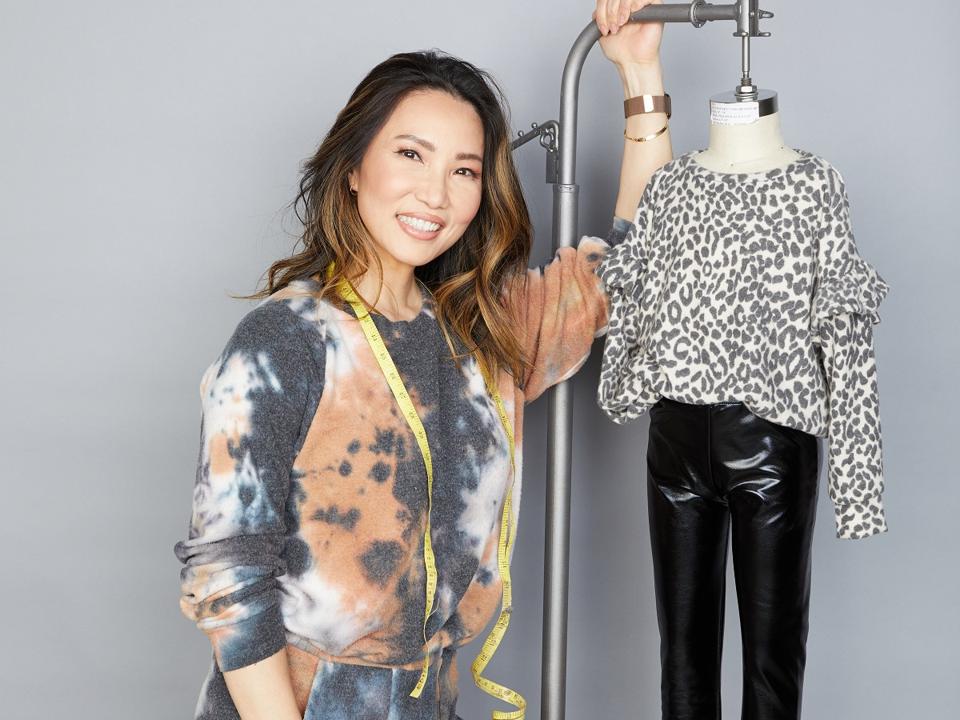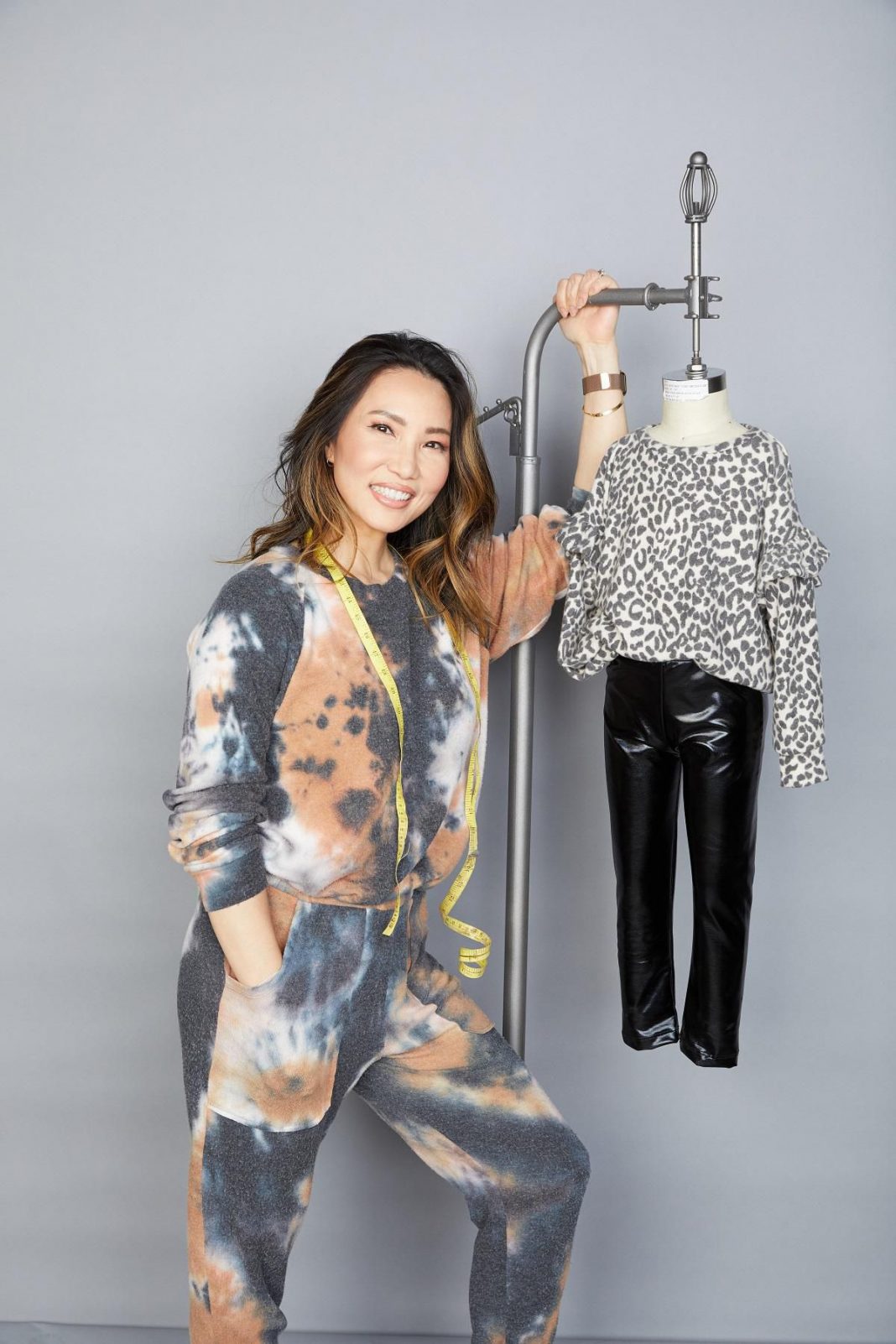
Ahyoung Kim Stobar, founder of Joah Love
Ari Michelson
Asian-Americans are grappling with increasing hate incidents against them. Much of it was brought on by former President Donald J. Trump’s rhetoric. He frequently used racist language to refer to the coronavirus.
As a result, some Asian-Americans, like Ahyoung Kim Stobar, founder of Joah Love, experienced online harassment long before the media started reporting it. Despite this, her company has thrived over the past year. Other Asian-American businesses have not been so fortunate.
Pivoting Finds A Rocky Path Forward
Back in February 2020, as fear of the new coronavirus spread, buying habits changed—stockpiling toilet paper, sanitizer, and canned goods became the thing and buying clothes was not. By March, Kim Stobar’s wholesale lifestyle clothing company, Joah Love, faced a lack of orders and collections problems.
It was a particularly heated exchange with a customer that gave her the final kick in the butt to design and manufacture masks, something Kim Stobar’s husband had suggested to her earlier. The retailer dismissed paying for a $60,000 order received in January unless given a steep discount and delay payment until some undefined time in the future. He also refused to return the merchandise. The conversation devolved from there.
Even before the coronavirus outbreak, for many Asian countries, such as South Korea, mask-wearing was a cultural norm. Wearing masks to protect others when you are sick is a common practice. Kim Stobar moved to the United States when she was nine years old. “I grew up wearing face masks in Korea,” she said. Could designing, manufacturing, and selling direct to consumers online offset losses in her clothing business?
Rather than turning her anger at a customer inward, Kim Stobar turned it into action. Alone, she went back to her warehouse, designed a mask, and started making it. Within a week, she began selling masks directly to consumers online. She sold out immediately.
You would have thought that was a good thing!
Pushback on social media quickly followed. It wasn’t until April of 2020 that the CDC recommended wearing a cloth mask in public. “Why the hell are you trying to profit off of the pandemic,” Kim Stobar recalled one comment. “You should be ashamed of yourself!”
Whether it was Instagram or Facebook pages, the Korean community was already talking about an uptick in racist attacks against Asian-Americans. Often they had proof—video of the incident. While racist social media posts are still a concern, the more significant problem now is potential attacks and real-world violence against Asian-Americans.
The Facts About Asian-American Owned Businesses
Between February 2020 and December 2020, the number of Asian-American business owners decreased more than any other group (20%), including African-American (3%) and Latinx (3%), according to data produced by Robert Farlie, Professor of Economics at the University of California, Santa Cruz. While the decline in African-American and Latinx businesses was higher early last year, their numbers started to stabilize around August. Not so for Asian-Americans.
The Asian population is the fastest-growing ethnic group in the US. The share of Asian immigrants has grown from 4% in 1960 to 28% in 2018. Among new arrivals to the US, Asians outnumber Hispanics. Between 2012 and 2017, Asian-American, women-owned businesses have the highest growth rate of any racial and ethnic group analyzed by the Census in terms of the number of firms, total employment, and revenues.*
How Joah Love Not Only Survived But Thrived
Initially, Joah Love employees couldn’t come to work. The governor ordered Californians to stay home to slow the spread of the coronavirus. With her husband, parents, and nanny’s help, Kim Stobar was able to produce and ship masks until her employees could return.
Then came the request from Los Angeles Mayor Garcetti for the fashion industry to start making cloth masks. “Everybody started buying the masks!” exclaimed Kim Stobar. Joah Love employees returned to work. As the year progressed, she even added more employees to the team.
Joah Love started in 2008 as a premium children’s brand. Back then, you had companies like the Gap, Gymboree, and Old Navy that appealed to the masses. There were no boutique brands for children. Kim Stobar had designed women’s fashion for years. Her aesthetic was to design timeless children’s styles that moms wished came in their size so they could wear them, too. Clothing colors are neutral, not a rainbow. Initial designs were sizes 2 to 6, then expanded to newborn to size 14. Eventually, some styles were offered in adult sizes.
“My clothing brand is all about comfort, so I wanted to come up with a very comfortable mask that could be adjustable to any face shape or size,” said Kim Stobar. It doesn’t use an elastic band to tighten the mask. “I developed a patent-pending adjustable strap mechanism,” she said. As more was learned about mask protection, a pocket for a filter was added to some masks.
On a road trip in August to take her parents back to Washington, where they lived, Kim Stobar noticed that every time she made a pit stop at a gas station, she couldn’t remember where she put her mask. A friend also told her about her four-year-old dropping his mask into the toilet when using a public bathroom. To ensure masks don’t get lost or fall off, she created an infinity strap, which is worn like a necklace.
Over the past year, whether it was masks or fashion, the company has focused more on direct-to-consumer sales rather than selling through retailers. “We’re evolving from a wholesale-focused brand to becoming a direct-to-consumer brand,” Kim Stobar said.
How will you adapt your company to market conditions?




